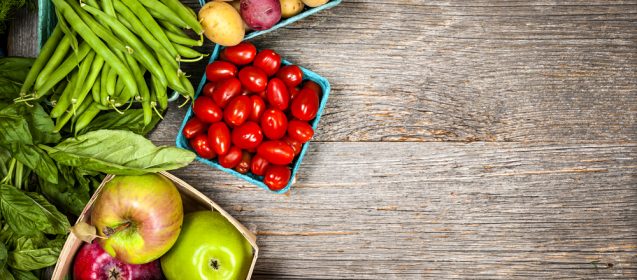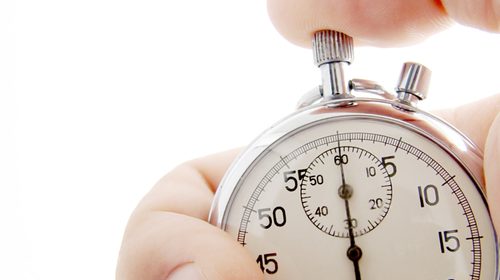Ideas for Healthy Snacking
Even if you eat three well-rounded meals per day, you will still feel hungry at times, especially during periods of heavy training. What’s the answer? Healthy snacks. Snacking (mid-meals) of nutritious food can keep your energy level high, blood sugar levels constant, your body re-fueled and your mind alert.
Why Healthy Snacking Is Good for You
You may have noticed that you feel hungry more during speed or endurance training. This is natural — during periods of high activity, a person’s body demands more nutrients to replenish lost glycogen stores and repair muscle tissue. Protein and Complex- Carb snacks are a terrific way to satisfy that hunger and get all the vitamins and nutrients your body needs.
But you need to pay attention to what you eat. Stuffing your belly with a large 500 calorie smoothie after your workout may give you a temporary boost, but a snack this high in fat and calories will only slow you down in the long run.
To keep energy levels going — and avoid fat weight gain — steer clear of foods with lots of simple carbohydrates (sugars) like candy bars or soda. Look for foods that contain complex carbohydrates like whole-grain breads and fruits and vegetables. Then combine them with protein-rich snacks such as peanut butter or low-fat yogurt or cheese.
Judging Whether Snacks Are Healthy
Choosing healthy snacks means shopping smart. Be cautious of the health claims on food packages. Here are some things to watch out for. Just because something is “all natural” or “pure” doesn’t necessarily mean that it’s nutritious. For example, “all natural” juice drinks or sodas can be filled with sugar (which is, after all, a natural ingredient) but all that sugar means they’ll be high in calories and give you little nutrition.
A granola bar is a good example of a snack that people think is healthy. Although granola bars can be a good source of certain vitamins and nutrients, many also contain a great deal of fat, including a particularly harmful type of fat called trans fat. On average, about 35% of the calories in a regular granola bar come from fat. And there can be a lot of sugar in granola cereals and bars. Check the Nutrition Facts label on the package to be sure. Be skeptical of low-fat food claims, too. If the fat has been eliminated or cut back, the amount of sugar in the food may have increased to keep that food tasting good. Many low-fat foods have nearly as many calories as their full-fat versions. Whatever claims a food’s manufacturer writes on the front of the package, you can judge whether a food is healthy for you by reading the ingredients and the nutrition information on the food label.
Smart Snacking Strategies
Here are some ways to make healthy snacking part of your everyday routine:
- Prepare healthy snacks in advance. Did you know that you can make your own granola or
trail mix? When you make something yourself, you get to control the ingredients and put in what’s good for you! You can also keep plenty of fresh fruit and veggies at home so you can grab them on the go. Cut up melons or vegetables like celery and carrots in advance. Keep the
servings in bags in the fridge, ready to grab and go. - Keep healthy snacks with you. Make it a habit to stash some fruit, whole-grain crackers, or
baby carrots in your backpack or workout bag so you always have some healthy food nearby. Half a cheese sandwich also makes a great snack to have on standby. - Make it interesting. Healthy snacking doesn’t have to be boring as long as you give yourself
a variety of choices. Whole-wheat pretzels with spicy mustard, rice cakes with peanut butter and raisins, or low-fat fruit yogurt are healthy, tasty, and easy. - Satisfy cravings with healthier approaches. If you’re crazy for chocolate, try a chocolate
protein shake instead of a chocolate bar. Substitute nonfat frozen yogurt or sorbet for ice cream. If you’re craving savory munchies, snack on baked tortilla chips instead of regular corn chips and pair them with salsa instead of sour cream. Or satisfy salt cravings with pretzels instead of chips. - Read serving size information. What looks like a small package of cookies can contain 2 or
more servings — which means double or even triple the amounts of fat, calories, and sugar shown on the label.
Don’t slip up after dinner. Evenings can be a tempting time to indulge in sugary, fatty snacks. If you’re really feeling hungry, don’t ignore it. Instead, pick the right snacks to fill the hunger gap. Whole-wheat fig bars, rice cakes, or air-popped popcorn can do the trick, as can fruit paired with cheese or yogurt.
*Contact Sonja for your personal running nutrition consultation!
Here are a few healthy snacking ideas:
- Ants on a log — Spread peanut butter on celery sticks and top with raisins.
- Banana ice — Peel several very ripe bananas, break them into 1-inch pieces, and freeze the pieces in a sealed plastic bag. Just before serving, whirl the pieces in the blender with a smallamount of water or juice. Serve right away. Add berries for a different flavor or top with fruit or nuts.
- Mini pizzas — Spoon pizza sauce onto half a bagel, English muffin, or mini pita. Top with low-fat mozzarella cheese and your favorite veggies and toast or bake at a low setting until the cheese is melted and the bagel is crispy.
- Healthy ice pops — Freeze fresh, unsweetened 100% juice in ice pop molds or ice cube trays.
- Low-fat pita and hummus — Warm a pita in the oven on low, then cut it into small triangles. Dip it in a tasty, low-fat hummus. Hummus is available in yummy flavors like garlic and spicy red pepper.
- Happy trails mix — Combine 1 cup whole-grain toasted oat cereal with 1/4 cup chopped walnuts and 1/4 cup dried cranberries for a healthy trail mix.
- Apple Dips – Slice Crispy Green Apples and Dip them in low-fat almond or peanut butter.



